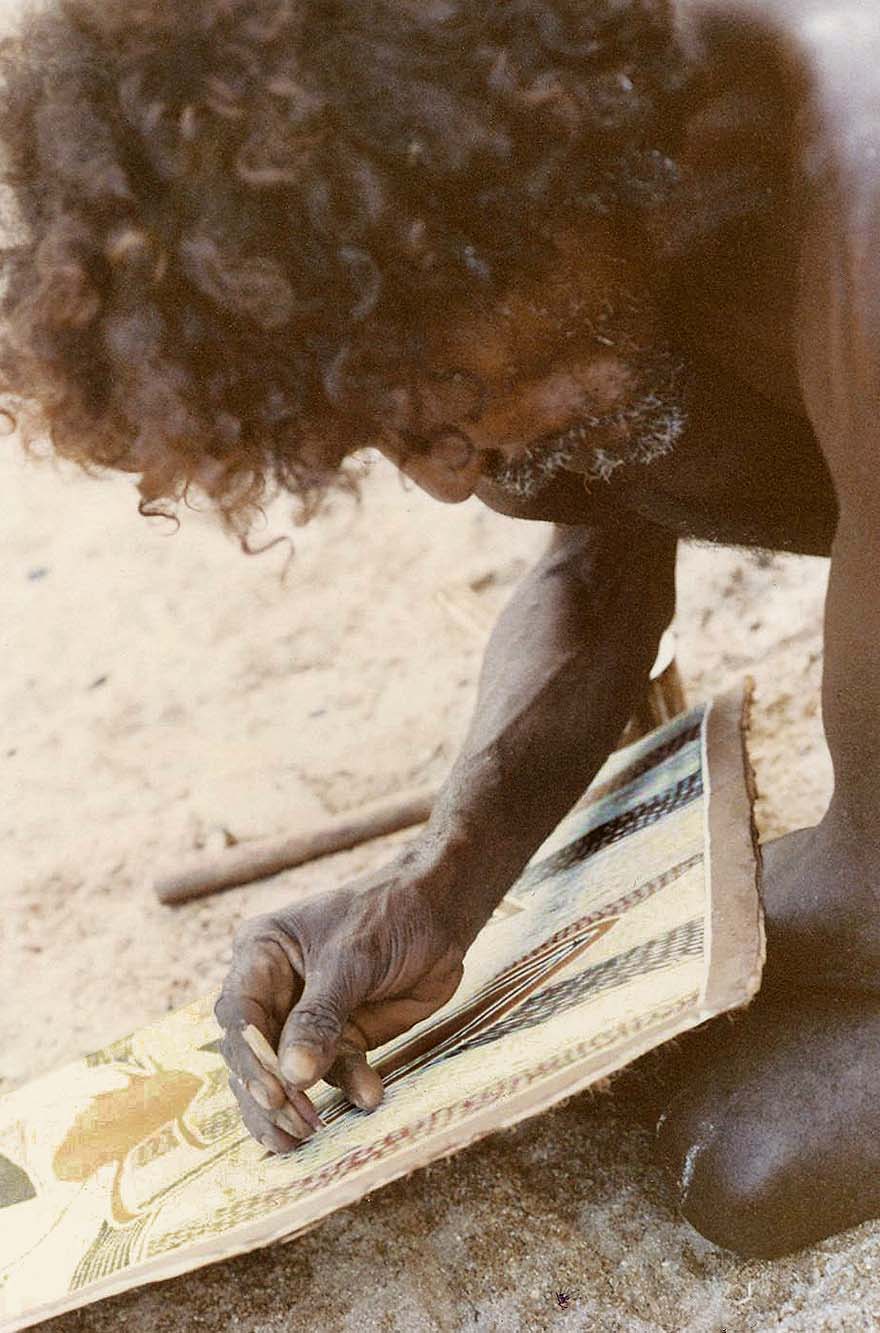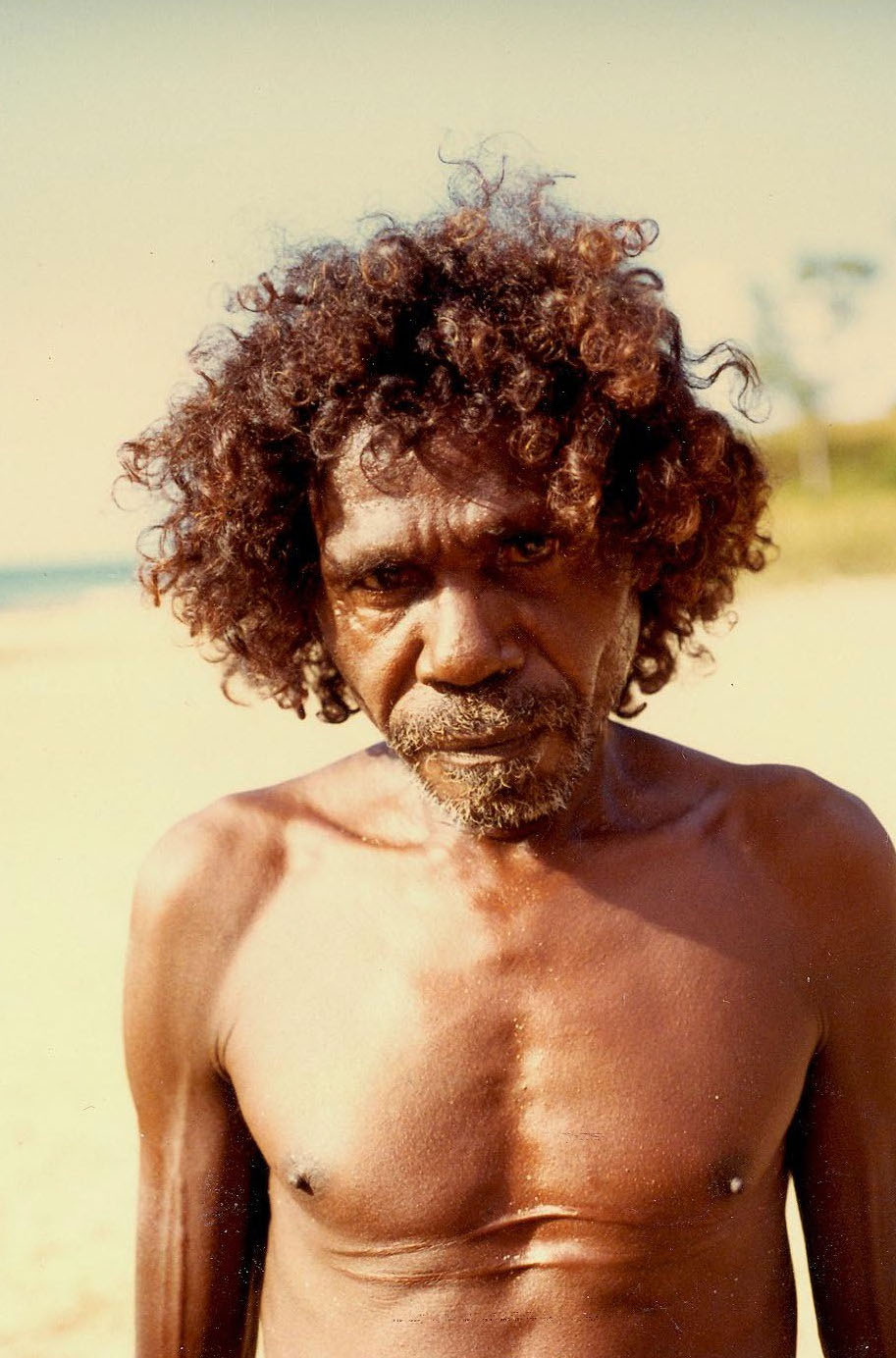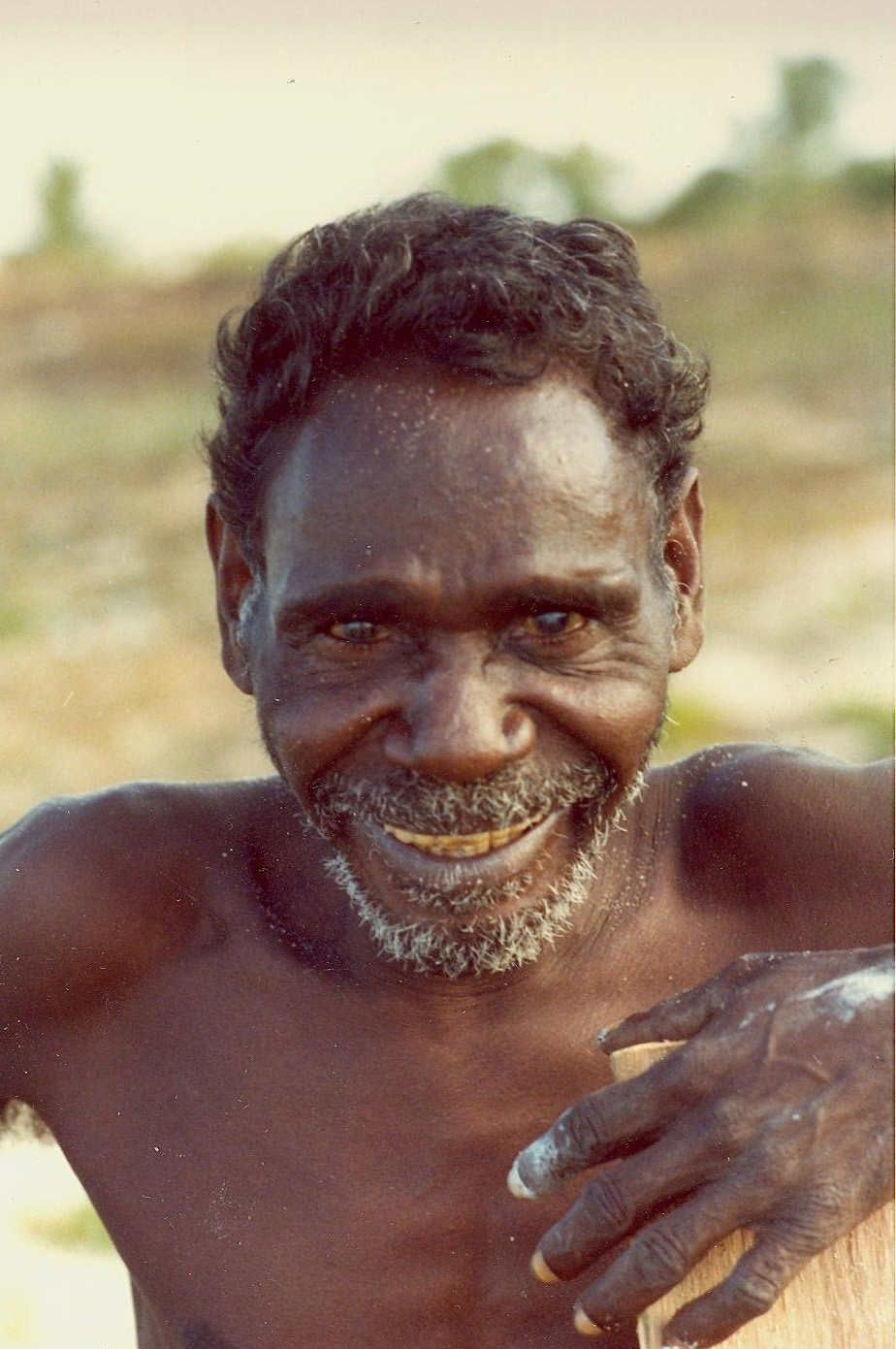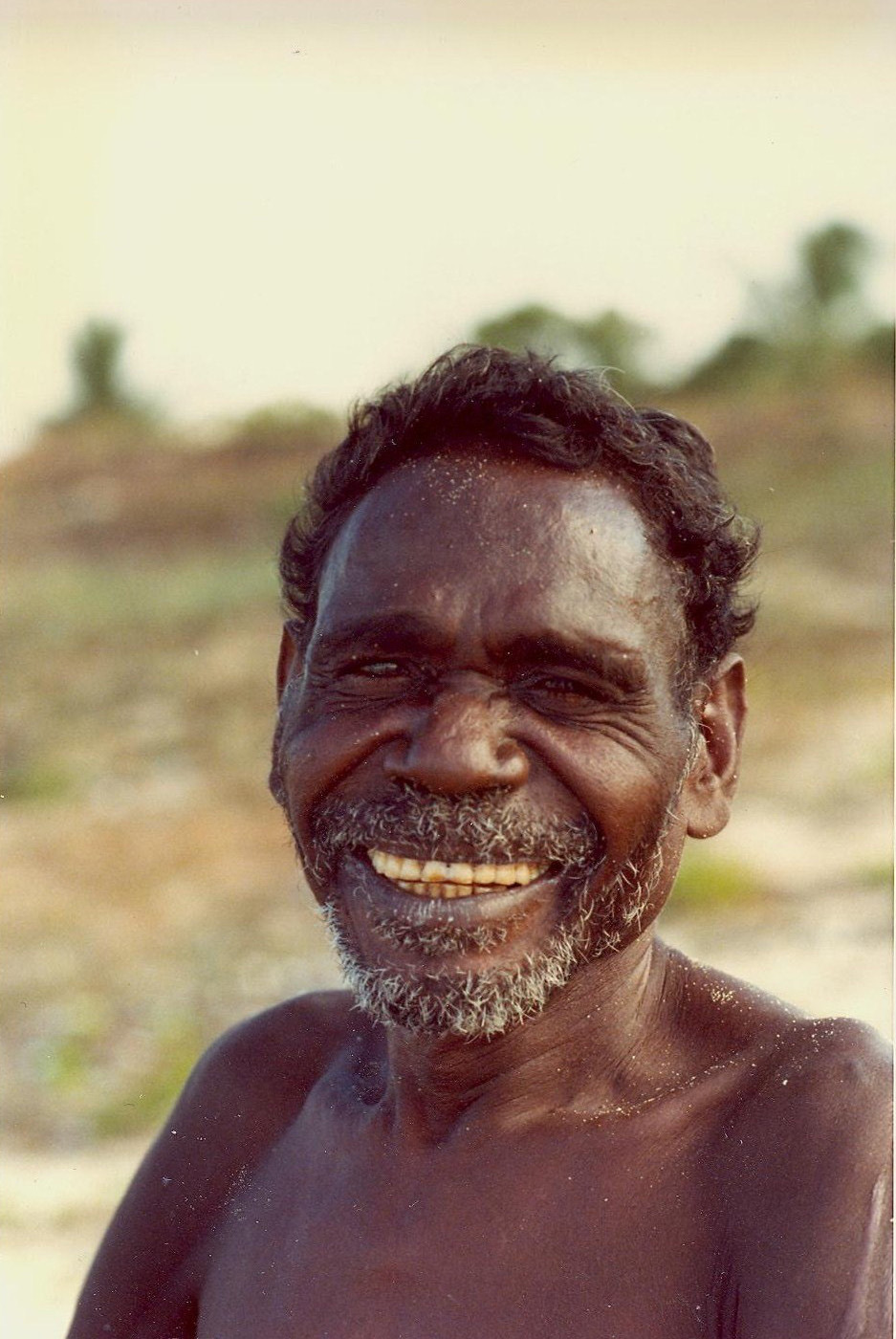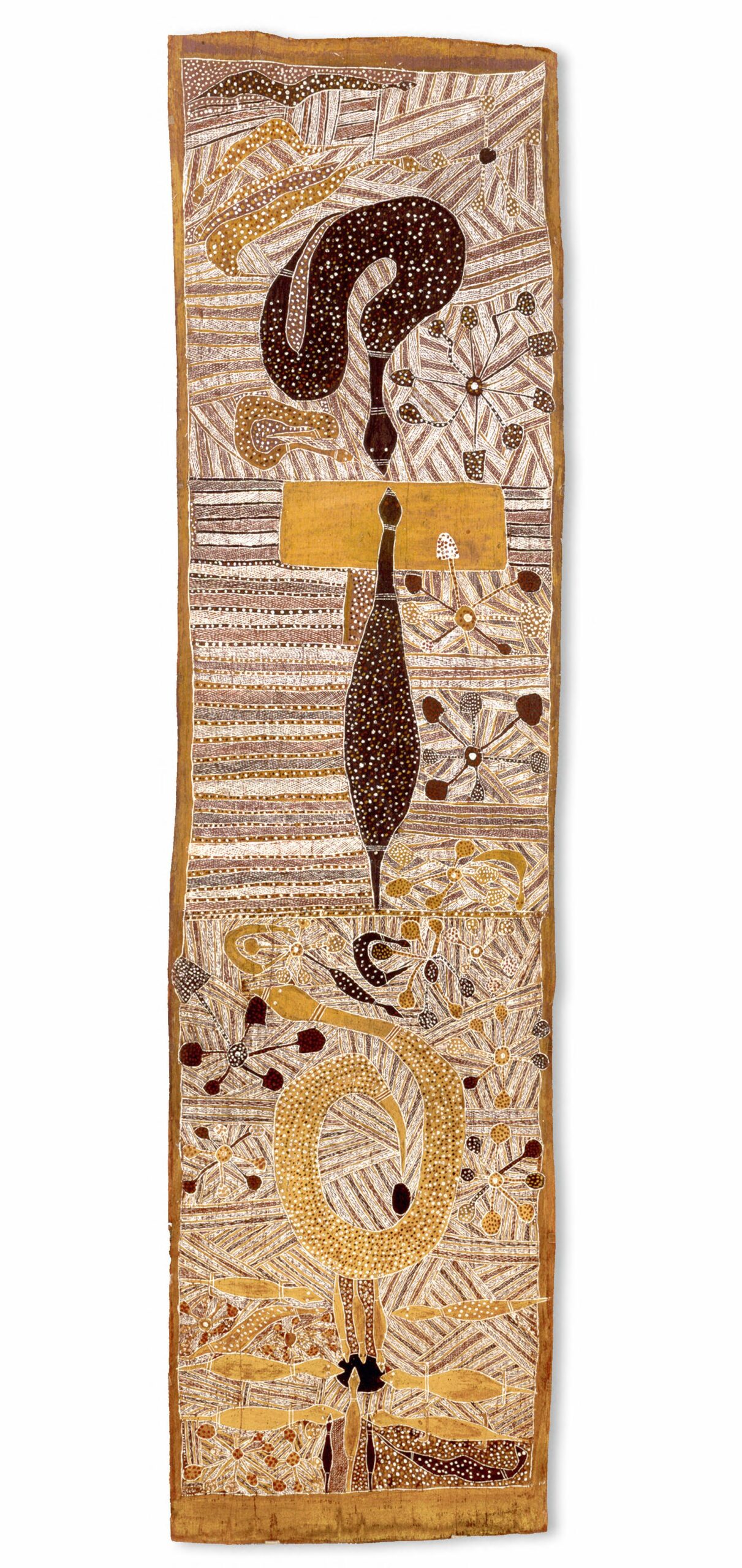
"While the children splashed around the pond, the mother, Witij, the rainbow serpent, covered them with rainbows. As they were swimming, there came a djaykuŋ’ (Acrochordus javanicus, file snake). She became the Wirrpaŋu, and the thunder rumbling sound made her come to the pond. When she came, the mother and her children killed the djaykuŋ’, along with my waku’s (child's) totem minhala (the long-necked tortoise) and the waterlily roots."
– GUWAṈBAL GURRUWIWI
More Info
Mithinari Gurruwiwi was an exceptional and prolific artist from the Blue Mud Bay area of north-east Arnhem Land. Born in 1929, Gurruwiwi was taught to paint by Mawalan Marika and his works predominantly refer to the Gälpu clan’s lands around Caledon Bay and Garrimala, further inland. Gurruwiwi’s works offer a seamless combination of figurative elements and abstract clan designs. His exquisite infilling techniques of delicate dots, fine lines and intricate cross-hatching, contrasted with bold areas of pure color, enliven his works. This is especially evident in this work, one of the finest bark paintings in the Art Gallery of New South Wales' collection. Completed when Gurruwiwi was only thirty, the work depicts waterlily-covered billabongs that are home to plump file snakes, valued food sources that are just part of the riches to be found in Gälpu country.
– Howard Morphy
Additional Information
Decade
c.1960
Medium
Natural pigments on eucalyptus bark
Dimensions (IN)
110 ¼ x 27 1/2
Dimensions (CM)
280 x 70
Credit
Art Gallery of New South Wales.
Gift of Prof. Harry Messell, 1987. 392.1987
Narrative
Gälpu
The Gälpu clan belongs to the Dhuwa moiety. Major spiritual themes include Wititj and Bol’ŋu....
Location
1960s
The 1960s were a decade of tumult and triumph for Yolŋu art and artists. In...
About The Artist(s)
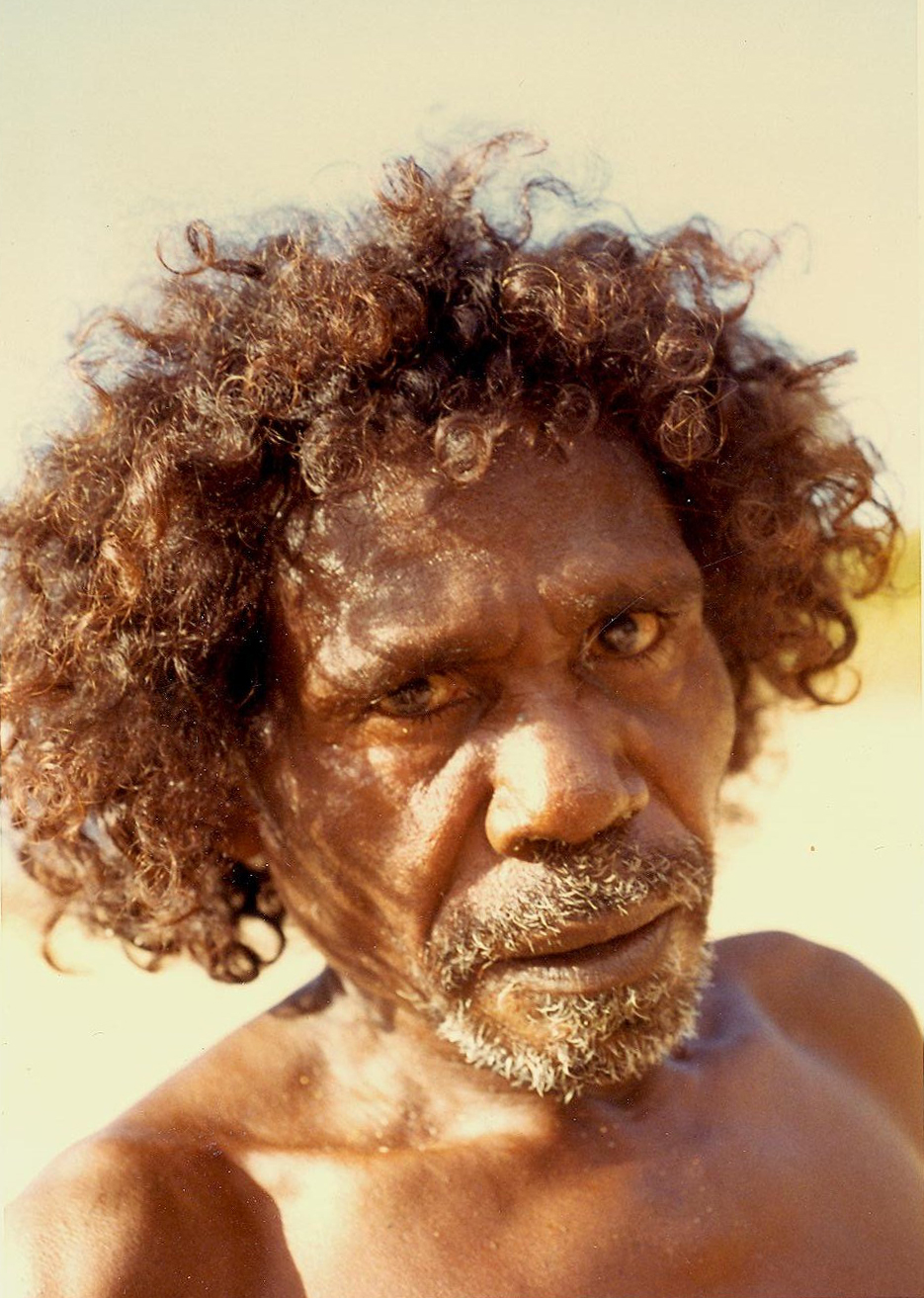
Clan
Gälpu
Artist Dates
c.1929-1976
Alternative Names
Midinari, Midhinarri, Mitinari
Collections Represented
Art Gallery of New South Wales
Art Gallery of Western Australia
Field Museum of Natural History, Chicago
Grey Art Gallery, New York University
Kluge-Ruhe Aboriginal Art Collection of the University of Virginia
Museum of Anthropology, University of British Columbia
Museum and Art Gallery of the Northern Territory
Museum of Contemporary Art, Australia
National Gallery of Victoria
Newcastle Art Gallery
Tasmanian Museum and Art Gallery

